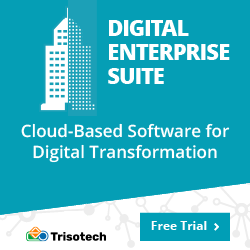Why use an LMS?
Blog: Good eLearning
Online training has become far more popular in recent years, with more individuals and businesses opting for ‘e-learning’ over traditional training. Studying online can certainly be cheaper and more convenient for candidates looking to enhance their capabilities, earn qualifications, and progress in their careers.
However, one aspect of online training often overlooked by individuals is the ‘Learning Management System’ or ‘LMS’. This is an online learning platform used to host courses and provide additional services such as communication, e-commerce, and access to support. Combined with the widespread access to web-enabled electronic devices like PCs, phones, and tablets, an LMS makes it easy for candidates to access training.
The convenience of LMS platforms has made them the norm in the e-learning industry, but are they strictly necessary? Having to register on such a platform can sometimes put candidates off, and organizations with their own training schemes may not want to invest in developing an LMS themselves.
So, what is it that makes LMS platforms so beneficial? In this article, we explore why you should be using an LMS for your training program.
What are the benefits of using an LMS?
Convenient access – A Learning Management System is ideal for a large training program as it can accommodate as many users as necessary. This allows all of them to access courses reliably, and with cloud hosting, they can do so from any electronic web-enabled device. In short, an LMS guarantees that candidates can access and utilize training materials anytime, anywhere.
Performance tracking – To manage a training program it is important to keep on top of how candidates are faring. This can be awkward and time-consuming to do manually, especially for larger programs. With an LMS platform, managers can extract performance data for teams and individuals instantly. Not only does this make it easier to gauge the success of learning programs but it can also help managers be proactive in providing support to candidates who are not performing as well as others.
Convenience – One of the difficult aspects of corporate training programs is when they interfere with day-to-day work. This is particularly common with traditional training with set lesson times. However, e-learning courses often offer several months’ worth of access. Combined with an LMS, this makes it easier for students to find convenient times to study and avoid disrupting essential tasks or deadlines.
Simple management – A major benefit of LMS platforms is the burden they take from training managers. Even something as simple as setting new candidates up with learning materials can be burdensome without an LMS, which can immediately give newcomers access to whatever they need. LMS systems can also handle other tasks relating to admin, support, and communication. This gives learning and development managers the freedom to use their time elsewhere, such as by supporting candidates in need of help.
Costs – The access and convenience provided by LMS platforms can greatly reduce the financial cost of corporate training programs. A common counterpoint is that LMS systems have their own costs relating to development and maintenance. However, learning providers will usually have their own systems rather than requiring clients to develop their own from scratch. This also helps businesses get the ball rolling quickly once they have chosen a platform, ensuring that their training programs can begin producing value as soon as possible.
Customization – A common issue companies have with online training courses is that they can appear to be mass-produced. This is why many LMS platforms are white-label. That is to say; they are designed in a way that can incorporate company branding, graphics, and other elements that show the LMS is ‘yours’. This is far cheaper than developing an LMS system from the ground up and helps reinforce the idea that a company has its own learning culture.
Updates – The issue with corporate training is that the material can quickly become outdated. This is happening faster than ever, with the Digital Age regularly seeing new technology, ways of working, compliance regulations, and other elements being introduced. With e-learning courses and LMS systems, training materials can be updated far more quickly and cheaply than with hard copies. This can be essential for keeping training up to date and avoiding potential compliance penalties.
What is the Learning Ecosystem?
The Learning Ecosystem is an award-winning Learning Management System created by Good e-Learning. Based on the world-class Docebo platform, it offers a number of key benefits:
- White labeling – The Learning Ecosystem can incorporate company branding and other features to suit your business.
- Accessibility – With the Go.Learn app, the Learning Ecosystem can be accessed any time, anywhere, and from any electronic device.
- Variety – The Learning Ecosystem supports several training resource types, including instructor-led videos, gamified quizzes, and free whitepapers.
- Dynamic reporting – The Learning Ecosystem allows managers to extract performance metrics for both teams and individuals immediately. The Good e-Learning team can also send regular reports and offer proactive support to candidates.
- Support – The Good e-Learning team offers world-class support for both course and technical queries.
- Ecosystem shop – This can be incorporated into an existing website to give users immediate access to courses without having to visit Good e-Learning.
You can find out more about the Learning Ecosystem here. Contact Good e-Learning today to find out how our bespoke LMS process can help you meet your training goals!
Leave a Comment
You must be logged in to post a comment.








